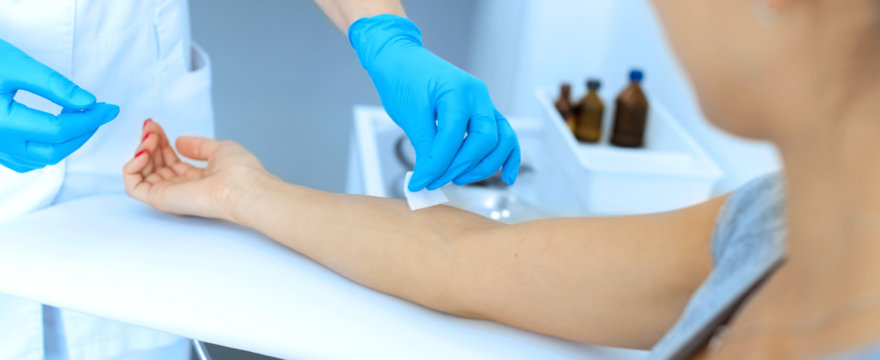Does your blood test show very high B12 levels?
We often get emails from readers whose blood tests have returned with elevated B12 levels such as 1200, 1500, 2000, even 7500 pg/ml. If your results are similar, is there any reason for you to worry? And what does high vitamin B12 even mean?
Let’s dig in 🙂

Causes of High B12 Levels In Blood
An Underlying Disease
If your test shows excessive B12 levels – in the absence of supplementation – this may be a sign of liver disease or cell death and the breakdown of tissues that release the B12 back into your blood circulation. Therefore, hypercobalaminemia (or, high serum vitamin B12 levels) may be a warning sign of some serious underlying pathology:
The aetiological profile of high serum cobalamin predominantly encompasses severe disease entities for which early diagnosis is critical for prognosis. These entities are essentially comprised of solid neoplasms, haematological malignancies and liver and kidney diseases. This review reflects the potential importance of the vitamin B12 assay as an early diagnostic marker of these diseases. A codified approach is needed to determine the potential indications of a search for high serum cobalamin and the practical clinical strategy to adopt upon discovery of elevated cobalamin levels. While low serum cobalamin levels do not necessarily imply deficiency, an abnormally high serum cobalamin level forms a warning sign requiring exclusion of a number of serious underlying pathologies. Functional cobalamin deficiency can thus occur at any serum level.
The pathophysiology of elevated vitamin B12 in clinical practice
Elevated levels of serum cobalamin may be a sign of a serious, even life-threatening, disease. Hematologic disorders like chronic myelogeneous leukemia, promyelocytic leukemia, polycythemia vera and also the hypereosinophilic syndrome can result in elevated levels of cobalamin. Not surprisingly, a rise of the cobalamin concentration in serum is one of the diagnostic criteria for the latter two diseases. The increase in circulating cobalamin levels is predominantly caused by enhanced production of haptocorrin. Several liver diseases like acute hepatitis, cirrhosis, hepatocellular carcinoma and metastatic liver disease can also be accompanied by an increase in circulating cobalamin. This phenomenon is predominantly caused by cobalamin release during hepatic cytolysis and/or decreased cobalamin clearance by the affected liver. Altogether it can be concluded that an observed elevation of cobalamin in blood merits the a full diagnostic work up to assess the presence of disease.
SIGNIFICANCE OF ELEVATED COBALAMIN (VITAMIN B12) LEVELS IN BLOOD
Supplementing?
However, keep in mind that if you’re supplementing, having high B12 levels in the blood is normal. This is one of the more common high-B12 causes. Nothing to worry about, as there are no toxicity levels. Most of the B12 is flushed out in the urine, while the rest is absorbed in the liver, kidneys and muscle tissues. Think about it this way:
When your test shows 1000 pg/ml, only about 5 μg floats around in your blood. Have a good B12-rich steak and your serum level shoots up to more than 1500 pg/ml for a short duration. With our recommended methyl B12 injections, if you do a blood test right after a 1,200 μg shot, you’ll see a recorded level of ~250,000 pg/ml for a few minutes! Inject two or three times a day and you’ll have high blood levels of B12 around the clock.
In such cases, high levels are absolutely normal.
Summary: High Vitamin B12 Levels
To sum up, are your vitamin B12 levels too high?
Your first priority is to rule out any underlying conditions, such as kidney failure, liver disease, or cancer, which can release B12 back into the blood. Early diagnosis is key, so if you have excess B12 levels, get tested. If an underlying disorder causes your high B12, focus on treating that condition rather than on lowering your B12 levels.
An exception is if you regularly supplement with B12, in which case elevated blood levels of B12 are expected, assuming everything else looks normal.
Hope that’s helpful.

